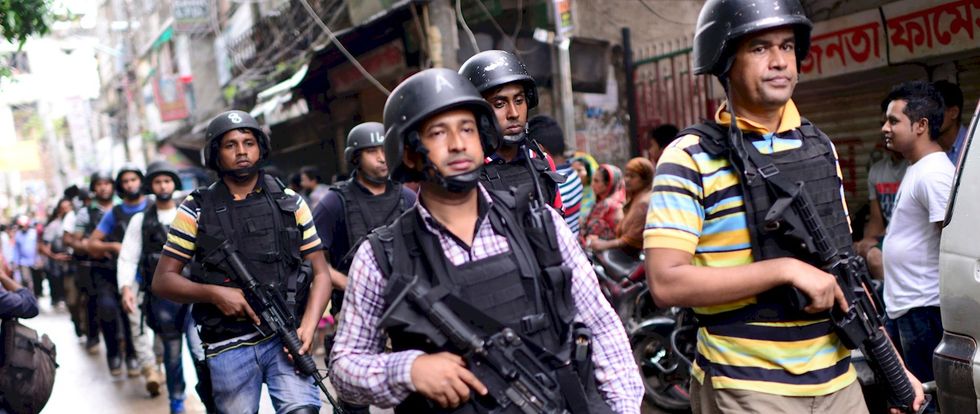Human Rights Watch has reported that since 2013 authorities in Bangladesh have illegally detained and tortured hundreds of people while holding them in secret detention centers. Many of those detained include opposition activists including 19 Bangladesh Nationalist Party (BNP) members who were picked up by law enforcement authorities eight times during a two-week period before the January 2014 elections. The 82-page report "We Don't Have Him: Secret Detentions and Enforced Disappearances In Bangladesh" shows how authorities have violated human rights by detaining these individuals while leaving their families with unanswered questions.
The report found that in 2016 at least 90 people were taken by authorities with 21 of those detainees being killed and another nine still missing. Three sons of opposition politicians were included in the 90 individuals who disappeared and while one of them was released six months after being secretly detained the location of two of them remain unknown. People have also been detained within the first five months of 2017 with 48 disappearances being reported.
Witnesses and family members have told HRW that the Rapid Action Battalion (RAB) or the Detective Branch of the police (DB) are the ones that have done most of the abuse, which both groups have a long history of committing. A senior RAB official told family members of a well known BNP leader who was being detained that the detainee and five others were removed from his custody by other RAB officials after he refused to kill them. He told the family members that he assumed they had all been killed.
Law enforcement officials have continually denied the arrests. Government officials back their claims stating the the victims could be voluntarily hiding. Yet, the police do not allow families to file complaints alleging that their relatives had been picked up by law enforcement and there are cases of police denying that they are holding individuals even though they were present during their arrest.
The practice of enforced disappearances and extrajudicial killings is not new to Bangladesh. Since 2009 at least 320 people were reported to have disappeared with people being suspected of criminal activity along with political opposition members being included in those who went missing.
With the cases of people being detained continuing in Bangladesh, it is imperative for the government to allow independent investigations into the allegations to ensure justice for those who were detained and to provide answers for the family members of those still missing.
The United Nations define enforced disappearances as when "persons are arrested, detained or abducted against their will or otherwise deprived of their liberty by officials of different branches of Government, or by organized groups or private individuals acting on behalf of, or with the support, direct or indirect, consent or acquiescence of the Government, followed by a refusal to disclose the fate or whereabouts of the persons concerned or a refusal to acknowledge the deprivation of their liberty, which places such person outside the protection of law."



















